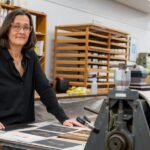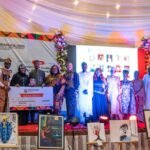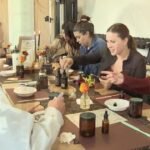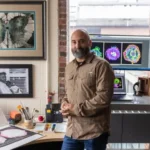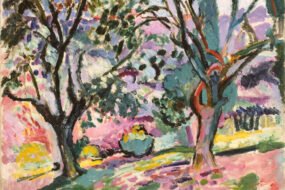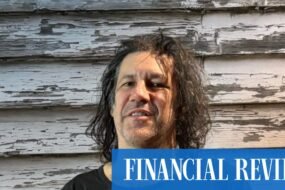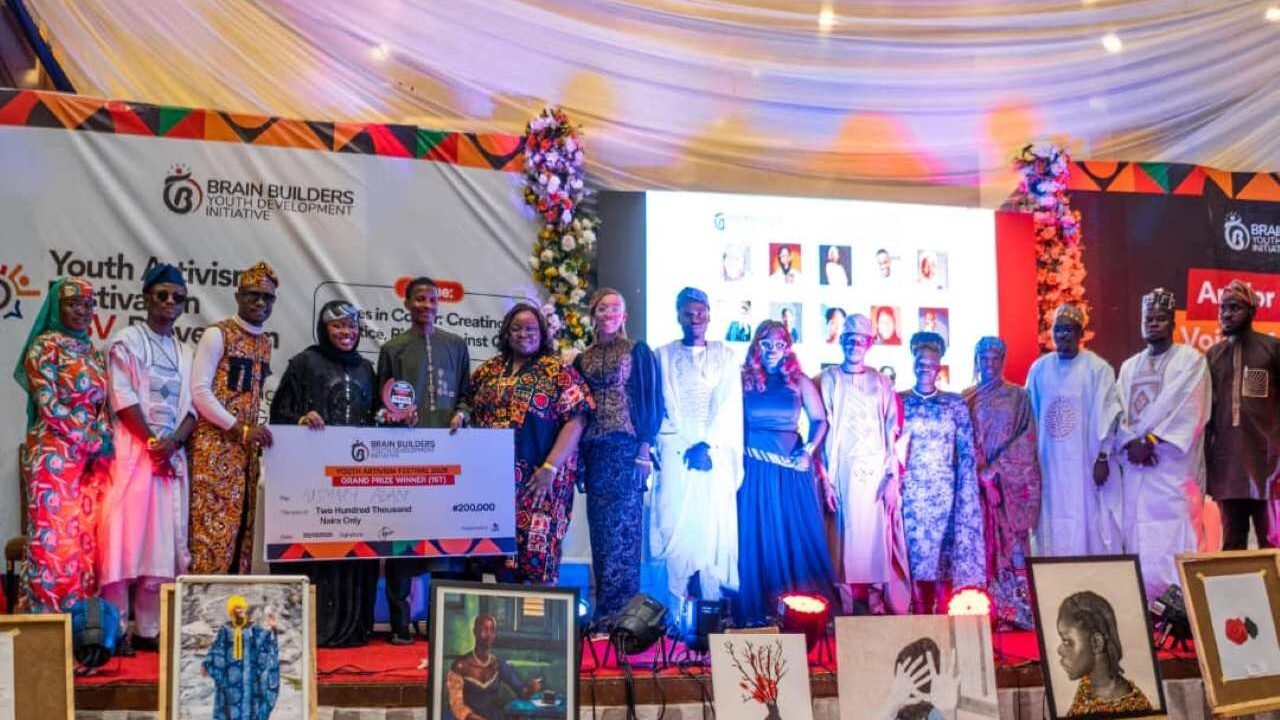
Ilorin came alive with colour, emotion, and purpose as the Youth Artivism Festival, organised by the Brain Builders Youth Development Initiative (BBYDI) with support from the Ford Foundation, brought together hundreds of young Nigerians to demonstrate the power of art in addressing gender-based violence (GBV). The festival, held at the Banquet Hall, was part of activities marking the Ford Foundation’s 65th anniversary in West Africa, celebrating its long-standing commitment to social justice, equality, and youth empowerment.
The event drew over 300 participants — including artists, activists, policymakers, and members of the public — all united by a shared belief in art as a catalyst for social change. Through visual art, music, theatre, and dialogue, participants explored how creative expression can challenge harmful norms, amplify survivors’ voices, and foster a culture of accountability.
In her opening address, Nurah Jimoh-Sanni, Executive Director of BBYDI, underscored the transformative potential of art in promoting gender justice. “Young people are not just witnesses to injustice; they are change agents,” she said. “Through art, they can challenge silence, demand accountability, and inspire action against gender-based violence.”
An exhibition featuring 22 finalists — selected from more than 100 submissions across Nigeria’s North Central region — captivated audiences with bold and emotive portrayals of resilience, empowerment, and solidarity. Each artwork told a story of pain and hope, revealing how creativity can provoke reflection and spark dialogue.
The festival’s award ceremony celebrated excellence in “artivism” — the fusion of art and activism. Usman Adam, a law graduate, emerged overall winner, receiving ₦200,000 for his piece Sketching Another Shoulder, which depicted shared responsibility in ending gender-based violence. Simon Thazhigilla of Nasarawa State won ₦150,000 for Bride of War and Anatomy of Science, exploring the emotional toll of abuse, while Tobi Olomola, a 25-year-old visual artist, received ₦100,000 for Weight of Becoming, a powerful reflection on identity and gender expectations.
All finalists received certificates of recognition for their creative advocacy. The festival concluded with a dramatic performance by the D’Stars Drama Troupe, whose moving depiction of community resilience left the audience in reflective silence.
A panel discussion titled “Art as Advocacy: The Role of Creativity in Preventing Gender-Based Violence” featured insights from Mal Yusuf Babatunde Abdulqadir, Eduvielawhe Olutimayin of the Street Project Foundation, Joy Oluwatoyin Adeboye, Barrister Jumoke Olaoye, and Evang. Funmilayo Olutimehin. Moderated by Sanni Alausa-Issa, BBYDI’s Communications Director, the session explored the intersections of art, policy, and advocacy.
Adeboye, a GBV survivor and advocate, shared her personal journey of healing through art. “Art gave me back my voice,” she said. “It helped me transform pain into purpose and use my story to inspire others.”
In her closing remarks, Ramat J. Owolabi, BBYDI’s Head of Women Development and Climate, commended all participants and partners, noting that the festival marks “the beginning of a sustained movement.”
“The Youth Artivism Festival is not just an event; it is a call to action,” she said. “We are committed to ensuring that art continues to drive advocacy and inspire hope across Nigeria.”
As the Ford Foundation celebrates 65 years of impact in West Africa, the Ilorin festival stood as a vivid reminder that art remains one of society’s most powerful instruments for justice — giving form to empathy, voice to the silenced, and vision to a future free of gender-based violence


